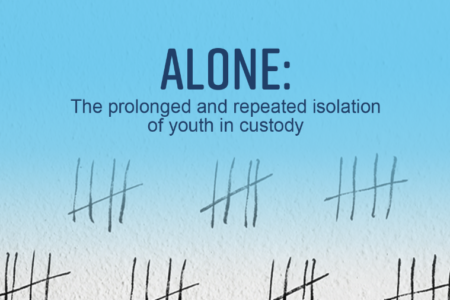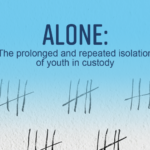A Popular Pope and the Historical Wrongs of Religion
“The Catholic Church is the ghost of the Roman Empire, the popes are the authorities most clearly in line of succession to the emperors of Rome.”
— historian W. I Thompson
“The separation of church from state is one of the greatest accomplishments of the Western Enlightenment, the beginning of the process of allowing freedom of belief and worship for citizens of a secular state.”
— undergraduate history text, 1970
“Men never do evil so completely and cheerfully as when they do it from religiousconviction” — Blaise Pascal, 1660
“No one welcomes armed missionaries.” — Robespierre, French Jacobin
“We will change the world by our example. Never – never — by force.”
— Thomas Jefferson, American revolutionary
Pope Francis conquers the world of celebrity
Watching Pope Francis in his multitude of appearances on TV and online, one must be struck with amazement that the head of a Christian Church can be so wildly popular in an age when there is also a strong current of opinion against religion and particularly against the history of his Church with violent crusades and cruel inquisitions in its record.
My personal Facebook pages, with posts from a mere 40 friends, seems to have daily news of this pope, and a great deal of what I see there is very positive. Pope Francis rates right up there as a wisdom teacher with the Dalai Lama, Albert Einstein, Paul Coehlo, Maya Angelou, Pico Iyer, and a site called “Learning Mind.” One might conclude Francis is loved by billions.
The pope has become, in a word, a celebrity. He is celebrated. This puts him in company with the Kardashians and Taylor Swift, Donald Trump and Oprah Winfrey. I will not pronounce on whether this phenomenon is positive or otherwise, I will only let the fact stimulate my mind to reflection on the meaning of religion for us today, and to delve into events in the history of religion. One pope and his attractive public persona cannot erase records of violent historical acts by the Church in situations when and where it had immense political power over millions.
Atheism and anti-religion in the 21st century
Karl Marx and the French Revolutionaries are the obvious ancestors of modern atheism, waging war on all religion with statements like, “Religion is the opiate of the People.” The history of Christian churches and wars appalled these rationalist radical world-changers.
The revolutionaries of the times from Rousseau to Bertrand Russell were certain that belief in God was harmful to the best interests of the masses, whether the masses knew it or not.
In France, the Revolution took a violent anti-clerical turn that resulted in thousands of priests going to the guillotine, and a heritage of aggressive anti-church policy still apparent in France today; there the State demands no official in public service and no civil government institutions shall display any religious adherence by means of any symbols. France has laws to enforce laicisme (from the word “laity,” non-clerical believers) against Christian, Jewish and Muslim markers being worn in defined circumstances – a precedent that affects Quebec law as well.
The Russian Bolshevik Revolution continued the anti-clerical tradition, attempting to eradicate the Orthodox Church and promoting official atheism under Lenin and Stalin. But Soviet Russia did not truly lack a religious life: Marxism/Bolshevism is a form of religious phenomenon.
Cuba has had much difficulty making communism and Catholicism live within one polity; Pope Francis made quite an impression there. Catholicism has weathered our times better than socialism has, because the latter made specific guarantees to build materialist utopia that it was quite unable to deliver, while Catholicism makes promises about the next life that no one can disprove.
In our day, authors Sir Richard Dawkins (The God Delusion) and the late Christopher Hitchens (God is not Great) are articulate and angry voices of atheism; they are called the New Atheists and their movement is aggressive. The adherents of the anti-god cause pay for advertisements on buses and billboards to tell the public not to worry about what God is doing because “there probably is no such thing as God.”
Personally, I think the New Atheists are simply missing the point about religion. It is not a phenomenon one can talk people out of, with rational and scientific-materialist argument. Dawkins writes and talks about genes and memes as an explanation but he misses the point. Religion is the result of a felt human need for spiritual community. It has existed in all recorded history and unrecorded prehistory. Since people feel that something immaterial, intangible and spiritual exists as reality for them, then it is a truth that must be treated as being just as real as the facts of particle physics.
Dawkins and Hitchens would never question that the lived experience of love, for our family, friends, spouses, is a real experience. It seems to me inexplicable that they cannot accept that the lived experience of love for God is a real experience, not an error of human understanding.
One does not need to understand another’s faith, but must deal with religion as a fact of humans’ individual and social behaviour – just as real as behaviour based on economic calculation and on love for others. Action is real, and the motive for action is reality too. Actions may need to be regulated, of course, and that will have an effect on motivations.
More about how to deal with religiously-motivated action in my conclusions…
Religion and Citizenship
Today there is a very specific problem of Islam in the West and whether Muslims can fit into the social order of the USA, or UK or France or Canada. All Western nations have a long and deep relationship to Christianity and its various churches: the West used to be synonymous with Christendom, a point which the Hungarian president made in the midst of his nation’s crisis with Muslim migrants fleeing Syria and Iraq.
Can old Christendom assimilate Muslim citizens? The usual answer to this is, if society is secular, people can have their religion as a private matter and all faiths can co-exist peacefully under “the rule of Law.” But is this true?
A prominent American academic has said on public media that a Muslim cannot be President of the US, and it did not cause a huge backlash. This flies in the face of separation of Church and State supposedly established by the American Constitution. America broke the European practice of each nation having only one official Established Church — supported by State taxation, whose adherents alone possessed a monopoly on civil, political, and legal rights.
For example, in the U. K. the Church of England was “established” but in Prussia it was the Lutheran Church and in Russia the Orthodox Church. The injustice of this to large number of people, such as Irish Catholics under the English Crown, was manifest. Revolutions after the American example were often aimed at ending the privilege of a religious minority; it was a key tenet of liberal democracy. It is a marker too of “modernization” according to sociologists.
American liberalism may be outraged by the discourse about the rights of Muslims to hold their faith and have equal political rights with Christians and Jews; American liberals also express outrage at Christian fundamentalists who say it is their right to refuse marriage licences to same-sex couples. America’s official self-presentation is that it welcomes all, and gives all an equal opportunity. No one is excluded by virtue of their private beliefs.
On the other hand, America has always had a strange thread of messianic Christianity as part of the politics of its democratic mission to bring freedom to the world by example and if necessary by force: building a “shining city on the hill” to be the new “Jerusalem,” the USA is “one Nation under God;” the Bible’s God is implicitly the one named.
Politics and Religion: trying to make a contribution to a better world
Liberals can no longer say with certainty that liberalism as a political philosophy is the true broad mainstream of American life, the middle, moderate position on all political questions, holding some balance between tyrannical socialism and lunatic Tea-Party republicanism.
The American centre may have shifted. How else explain that Donald Trump is the Republican Party’s front-runner just now? He can make racist statements, misogynist comments, and still his popularity is undimmed with some of the people. On the other end of the spectrum we have the spectacle of Bernie Sanders, a self-declared socialist, making an astoundingly serious bid to claim the Democratic Party nomination in spite of Hilary Clinton’s solid Establishment credentials. It has been truly said that at this moment the USA is more divided into stark political choices than at any time in its history since the American Civil War.
Religion is the number-one marker dividing Americans into liberal (ethical-universalist) and conservative (scriptural-fundamentalist) camps. I begin to understand the wisdom of Ralph Waldo Emerson when he said, looking at nineteenth-century America: “We must recognize it; we are two nations.” How the two nations can co-exist in the republic is a major challenge.
Here in Canada we have a Prime Minister willing to use war on “jihadist terrorism” as a defining piece of his political brand, who commits Canada’s armed forces to combat in this war, and who would strip convicted terrorists of citizenship.
He has been notably vindictive against Omar Khadr. Harper said in debate that he would never tell his own daughter “she must veil her face in public because she is a woman.” He says this, not to support his argument against a Muslim woman wearing a niqab at citizenship rituals, but to signal he has less respect for Islam than for other religions because it does not fit into Canadian norms. Harper has definite ideas about what is normal for old stock Canadians.
This plays to his “base.” And, it has helped him win some points in the polls in Quebec. Some people call this “dog-whistle politics” and blame a Harper strategist from Australia as the source. Such divisive politics are in my opinion quite startlingly at odds with Canadian traditions, but Harper may be in better harmony with the Zeitgeist than I am.
Dislike of religion on public display appears to be quite deep among our habits. Private worship and belief are not at issue, but the fear that one religion – Islam – motivates violence against random victims, is a very real fear and Canada has to come to grips with that reality. It is a major issue of public policy for our time. I rather doubt that education alone is the solution.
Dislike of religion as a cause or origin for violence is a sentiment we learned from the popular idea of what wars and horrors have been perpetrated in history by the power of religious leaders. Religion and violence have been associated so often as to teach us distrust of the people who have religious authority over believers.
Karen Armstrong, a noted historian on the subject of religion who left her post at Oxford to be a full-time author, just published a book arguing that there is a “myth of religious violence.” She is unconvincing. Religion does motivate individuals and societies to violence. She tries to make the case that underlying supposed religious motives there are usually deeper political, economic and/or psychological reasons that are the truer reasons for violence.
I am much more persuaded by the work of Scott Atran, anthropologist, who has delved deeply into the motives of young men who join Islamist terror groups because in jihad they find a reason for their urge to do something important to make the world better. Waging jihad gives them an unambiguous blueprint for a “better world.” Religion provides meaning; this is one of its absolutely core functions. A human mind needs self-understanding before action, and religion provides such understanding.
These young Muslim warriors feel driven to change the world, and religion is the place where change finds its convincing definition. In the 1960’s, young men and women expressed other dreams for changing the world, and in the 1930’s yet another ideology – fascism – fascinated revolutionary youth. The common denominator is idealism, the urge to fulfil an idealized vision.
The twentieth-first century’s warriors for God/Allah have a long pedigree. The violence of young men can be harnessed by old men, and the harness has often been religion. War is a great way to send young men into lethal action with an ideology; read Sebastian Junger’s War to see how the USA has done so in Afghanistan, or R. Hillman, A Terrible Love of War.
Christian history: popes, persecutions, Protestants, and politics
The medieval papacy directed the natural violence of noble warriors young and old in feudal Europe into crusades that sent the violent men out of Europe to the Holy Land where they could enjoy combat, their natural raison d’etre, and explain it to themselves by the best possible idealism. They waged war for Christ, the Saviour and Redeemer, to spread his word, to punish servants of Satan, protect sacred places, and earn their own guarantee of paradise.
This removal to near Asia of the warlords of the West helped reduce feudal warfare inside Christendom, and the papacy knew this quite well. Yes, power over land and people was a motive too for these noble lords. But religion was their motive, not mere gain. The popes were made more powerful too by directing holy wars, weakening their rivals in Constantinople’s Orthodox empire over the two centuries of the Crusades.
The popes abused crusade ideology to turn it against Christians inside Europe; witness events like the war waged by the kings and nobles of north France against the “heretic” lords of the south during the Albigensian Crusades; France as a nation came into its territorial extent by the success of the royal wars against the condemned variant of Christian belief, Catharism.
Spain is a nation created by centuries-long crusades of Christian warriors against Muslim invaders from Africa. The Dutch Netherlands’ independence as a state matured due in no small part to the effect of Protestant Calvinism. Sweden became a major power after Lutheranism was adopted as the national religion by its kings — who then conquered an empire in Germany. National unity around one form of religion enforced by a monarchical State was not accomplished peacefully; violence was endemic, those who did not conform suffered.
As time went on, the papacy employed its spiritual weapons — such as excommunication, interdict, and the deposing of monarchs — to punish its enemies, particularly the emperors of Germany and Italy; by mobilizing rival military powers like the French and the Italians to fight wars against armies from the northern empire, the popes were acting no differently from other egoistic leaders, exercising armed power in the pursuit of yet more power. Cynicism about papal spirituality was completely justified in the era of Machiavelli and Shakespeare.
Still, the last great alliance formed under the leadership of Rome using brilliant diplomacy was without a doubt a war of religion, not the Roman pope’s war to crush political independence of Christian rulers; the Christian West was victorious over the Islamic empire of the Turkish Sultan at the Battle of Lepanto in 1571, and from that date Muslim power to threaten the West waned by sea, and later by land also. This victory did not make the papacy supreme in Europe.
The same century, the 1500’s, that saw this great Christian victory over Islam, was an era when the Roman papacy turned its power against Protestantism, and a series of atrocious acts of violence in the name of religion in France, in Spain, in Italy, in Germany, in the British Isles and in eastern Europe resulted. A “civil war in Christendom” — between those nations loyal to Rome and those who rejected the papacy as supreme head of the Church — caused the death of millions from 1517 to 1715 in wars wherein religious motivation was equal to political urges.
The worst war of religion was the Thirty Years War in central Europe, pitting Catholic Spain and the Empire against north German princes, Denmark, Sweden, and Catholic France. It was ended by a complicated and comprehensive series of peace treaties collectively known as the Peace of Westphalia, and the pope of that day abhorred the peace and tried to force the Catholic powers to go on fighting. The failure of the pope to stop the peace signified just how little effective authority, to direct secular political powers, that the papacy possessed by 1648.
The Roman and Spanish Inquisitions were horrid examples of the Catholic religion and its “thought police” unleashed to torture and murder people who believed incorrectly; but again, political motivation was fused with religion too tightly to say one was dominant. Protestantism used violence just as extensively in lands where it defeated its Catholic foes, as with the English in Ireland, Calvinists in Geneva, or Germans and Scandinavians against the Roman Church and Empire. Witch persecutions in the name of God were rife in the same era.
Few Christian communities were blameless in the abuse of power to punish heretics, only the Society of Friends (Quakers) were true pacifists. Death for heretics was the normal penalty.
This is a short summary of the accusations of violence levelled against religion within the history of the West. The era when the West went overseas and brought the New World, Asia, and Africa under the rule of Christian imperialists and colonists from Europe has more horrid history; Spain subjugated Mexico and Peru, Britain and France took over wide lands in Asia and Africa, and the Dutch and Portuguese built commercial empires, in the name of converting the heathen to the One True God.
Religion was the legal foundation of European colonialism and international order which made conversion of souls the unimpeachable justification for killing and then ruling infidels and pagans. The cornerstone of Canada’s colonial history is solidly laid on Christian legalism. The UN and its forerunner the League of Nations are institutions originating in Christian history.
Religion without organization or politics: an impossible ideal?
In a fantasy, I imagine a peculiar religion for each individual person, unique to that person alone. Religions would possess just one believer each, and each human being would have a private relationship of their single soul to their chosen conception of divinity – a condition of completely unorganized religion. This is my solution to religious violence in human history.
But it will remain a fantasy, because humans appear, from the evidence of history, to want to organize their spiritual belief into communities. In fact, a community without commonalities of spiritual ideals is perhaps not possible with real human beings.
Similarly, I might fantasize a perfect anarchy, where politics do not exist, and no adult has power over another to make decisions for anyone but oneself. That too is not very probable given what we know about the human being in history.
Given that religion and politics are always going to be present where humans live together in numbers that constitute a community and a society, the realistic question is, how to have spiritual ideas and political practices that allow a maximum of freedom for each person – freedom from other people’s judgement of what is proper, righteous, godly or normal.
When I say that, I reveal my personal conviction that freedom is the very highest value for individual human happiness. It is a very liberal bias. Liberty is best for all of us (?)
The great foundation of liberal politics is the faith that education makes The People better. I also subscribe to this notion, but I am fearful of social engineering to make us improve.
Conclusions
I have no other solution to the problem of religious violence than the one Pope Francis appears to be propagating: acceptance with love of the multitude of differences among us, including homosexuals, divorced people, atheists and believers in other faiths. He knows as well as I do, and hopefully better, that his Church and the papacy that rules it, has not proven that it honours this solution. Christianity has been entirely too evangelical in history.
It is still a tenet of the Church that the “sole path to Salvation is Jesus Christ.” That is still in the dogma and the catechism of Roman Catholicism. If Francis makes no move to alter that, he will be merely a memory of a liberal pope after he is gone. His papal liberalism is not unique in history; Pope John XXIII was another wonder of liberal papal example in the 1960’s.
What power can stop people of different religions or no religion acting violently toward one another? The same power we expect to stop any kind of violence within our society – the State, or government. The Law must not favour any one religion over another, which is the precise breakthrough in political and legal practice that the Western Enlightenment made in France, the USA, and progressively throughout Europe over the last two centuries.
The fact that other nations, like Iran or Saudi Arabia, or China or India, may not follow the path of Western legalism or obey the list of rights declared by the U. N., does not deter me from saying it is still the best hope we have to end religious violence. The rule is straightforward: separate State power from the practice of personal religion. Keep power from the hands of men who are religious zealots.
When the king of Saudi Arabia said last week, “All atheists are terrorists,” he spoke in the authentic tradition of religious ideology upholding state power, the very practice that the West has been trying to leave behind in its past. Who will lead the non-Western civilizations away from this practice? Should the West try to lead them? Canadian soldiers have tried and failed forcefully to make the Islamic Republic of Afghanistan conform to our idea of progress.
The pagan Roman Empire was not a state that persecuted foreign religion so as to spread only Roman worship and stamp out its rivals, accepting all kinds of practices with few exceptions. That empire endured a very long time.
Why did Christians so clearly hate and fear and rage when they detected variant belief inside their communities in the past? Why did they perpetrate atrocity and brutality and inhumanity upon Jews, “heretics” and “heathen”? Because they believed they must do so — or the whole community would be damned. God in the Old Testament clearly did not tolerate wrong belief in Israel; Christianity adopted that fearsome, jealous God as its political ideal.
There is still, so far as I can see, no alternative to preventing cruelty and injustice in the name of religion than by making certain that Law has no inclination to tolerate inequality between religions. No religion gets special privilege. No church can judge another’s faithful. Keep power from the hands of religious zealots.
I trust popes may never go backward from Francis and again claim special authority over all humankind for the popes of one universal Church. As I said above, unless Francis moves to utterly revise the claims of Christianity to have a monopoly on “salvation,” then I do not see how Roman Catholicism will ever be trustworthy with political and legal power. Islam too is not to be trusted to give up its universalist claims; Saudi Arabia and Iran are theocracies based on their religious faiths. Even Buddhism in Sri Lanka has proven untrustworthy with power.
I realize my conclusions here are pretty pedestrian, not very new-agey. It’s the best I can do, God knows.
























